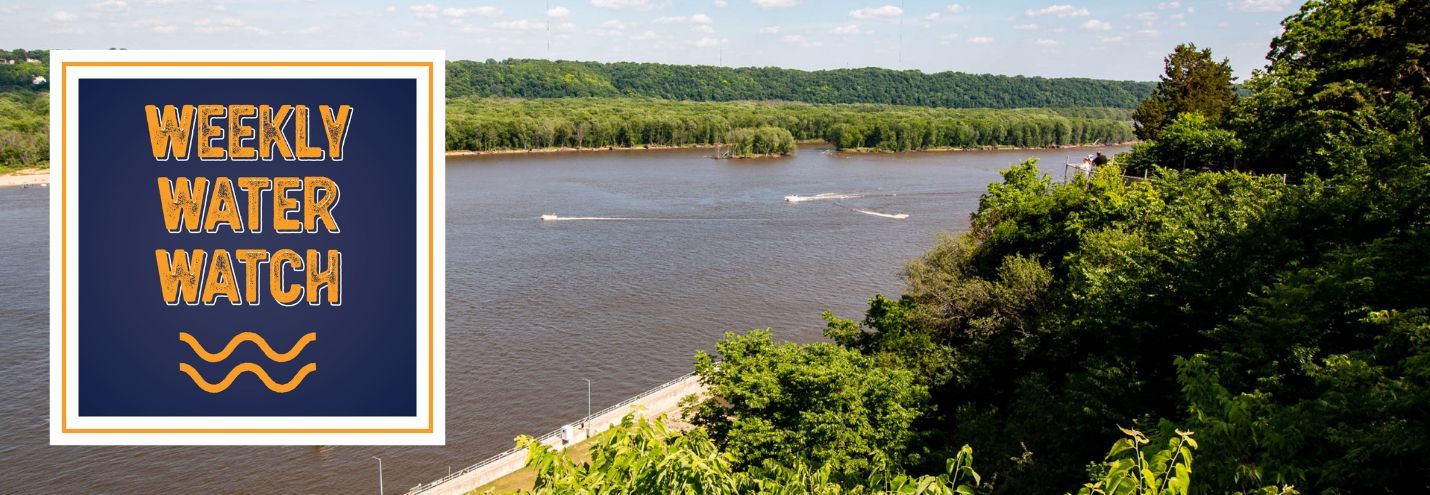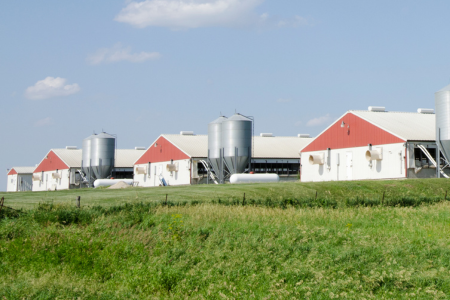|  | | 5 Beaches with an E. coli Advisory:
Denison Beach (Black Hawk Lake, Lake View, Sac County, IA)*
Lower Pine Lake Beach (Eldora, Hardin County, IA)*
Marble Beach (Big Spirit Lake, Spirit Lake, Dickinson County, IA)*
McIntosh Woods Beach (Clear Lake, Ventura, Cerro Gordo County, IA)*
Prairie Rose Beach (Harlan, Shelby County, IA)* 1 Beach with a Microcystin Advisory:
Lake Darling Beach (Brighton, Washington County, IA)* 3 City and County Beaches exceed the state’s advisory threshold for E. coli.*
View the map on our website to see where they are. *Data from the Iowa DNR State Park Beach Monitoring Program
**Data from the U.S. Army Corps of Engineers, Rock Island District |
| IEC, ELPC AFO Floodplain Report Analyzes Illegal CAFOs |
| This week the Iowa Environmental Council (IEC) and Environmental Law & Policy Center (ELPC) published Animal Feeding Operations in Iowa’s Floodplain: A Risk to Iowa’s Waters, a report that details animal feeding operation (AFO) construction and expansion in Iowa’s 100-year floodplain. The Environmental Working Group performed geospatial analysis on AFOs in Iowa’s floodplains. Since 2002, Iowa law has prohibited new and expanded confined AFOs on the 100-year floodplain. The legislature charged the Department of Natural Resources (DNR) with developing a floodplain map to identify the areas to apply the construction restrictions. However, since that directive, DNR has not developed or adopted the floodplain map more than 20 years later. "Iowa law recognizes that animal feeding operations are unsafe in a floodplain where floodwaters can carry pollutants into rivers that provide Iowans with drinking water and recreational opportunities," said Josh Mandelbaum, Senior Attorney at ELPC. "We have been waiting for decades for DNR to adopt a floodplain map to implement the law. This report illustrates the consequences of failing to comply with the law. We cannot afford for the state to wait any longer." Iowa has seen both extreme and long-term flooding throughout the state since 2002. When a manure storage structure floods, it can pollute waterways with pathogens, nitrogen, and phosphorus. In the twenty years since the floodplain exclusion law passed, the DNR has been operating under a case-by-case approach to site review. The analysis found that DNR’s interim process has not done an adequate job of preventing AFO construction and expansion in the 100-year floodplain. |
| | |  | Finding promise in parallel plagues - DDT, Eagles, and the AIDS crisis What do bald eagles have in common with the AIDS crisis? “The decimation of bald eagles is a cautionary tale of how short-sighted convenience can erase... what millions of years of evolution created… Until voices like Rachel (Carson’s) said otherwise and stood up for what mattered more.” In his creative writing piece for ISU’s Field Notes, Adam Janke describes the parallels between the AIDS crisis and DDT’s devastation on bald eagle populations. With strong, unwavering voices calling for action and backing from sound science and discovery, these “two plagues in parallel” were confronted and the tides were turned. Read the full piece (starting on page 45). |
|
|
 | Comments are in - what's next for AFO rulemaking? The most recent comment period for the Iowa DNR's new draft of proposed animal feeding operation (AFO) siting and manure management rules closed last Friday. Nearly 200 supporters submitted comments through IEC's action tool, joining us in calling on DNR for more protection for karst terrain, to maintain departmental discretion for facilities that pose imminent threats to water quality, and to adopt a floodplain map to restrict new construction in floodprone areas. DNR staff will now review and respond to comments, update the draft rules to reflect feedback, and anticipate issuing new draft rules in September. Stay tuned - we'll alert you for any opportunities to participate! | |
|
|
 | Swimmers Itch is back for the beach season Swimmer's itch is starting to make its presence known in many of Iowa's natural lakes in north central and northwest Iowa. According to Iowa DNR, the condition is caused by parasitic flatworms. The flatworm eggs are transferred to water by bird droppings. The eggs hatch and infect snails, from which the free swimming form of the flatworm larvae emerges. In the absence of a suitable host, such as a bird, the parasite will attempt to penetrate the skin of humans, after which it quickly dies, causing an allergic reaction below the skin resulting in welts and itching. The welts and itching can last for several days to a week and usually don't require a doctor's visit. There are a few simple steps swimmers can take to help prevent swimmers itch. Learn more from the DNR. |
|
|
| |  | | | |  | | | Iowa Environmental Council
505 Fifth Ave., Suite 850
Des Moines, Iowa 50309-2317
515-244-1194 | iecmail@iaenvironment.org |
|
|
|
|
|